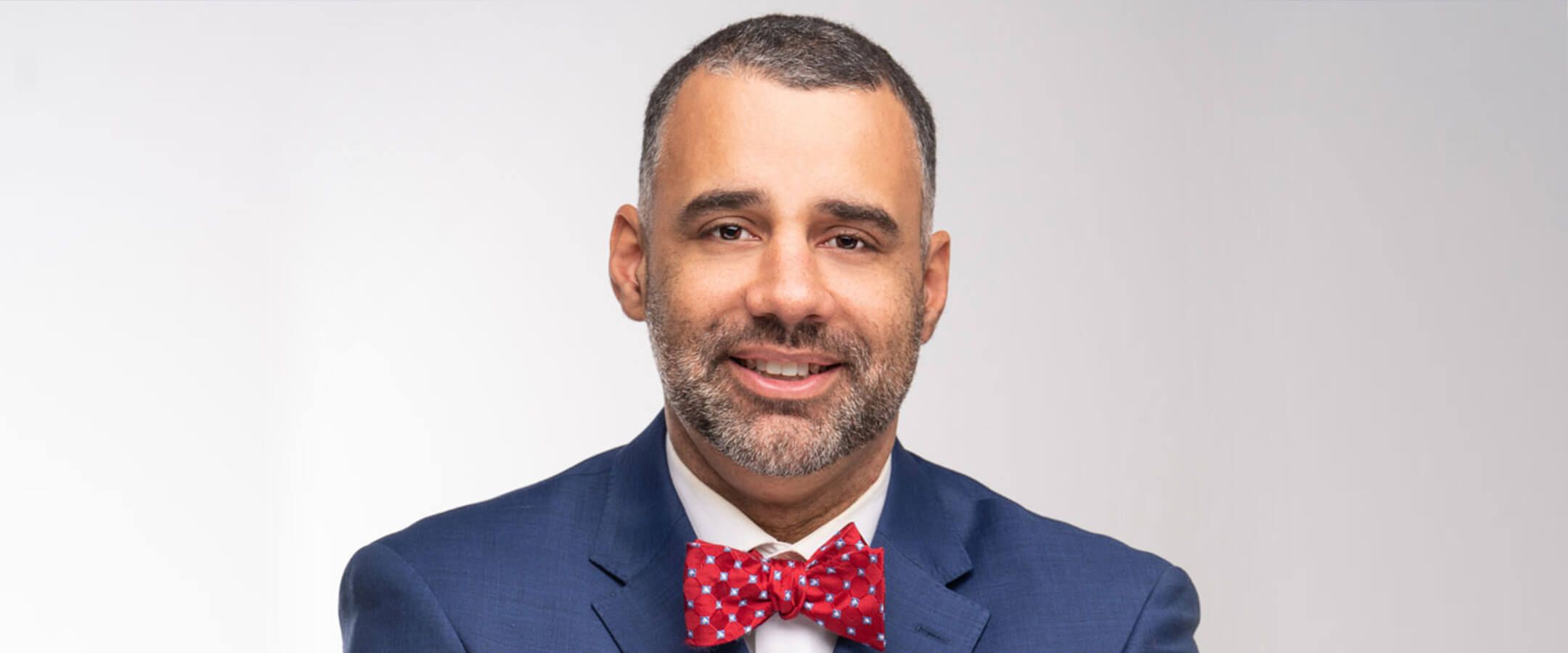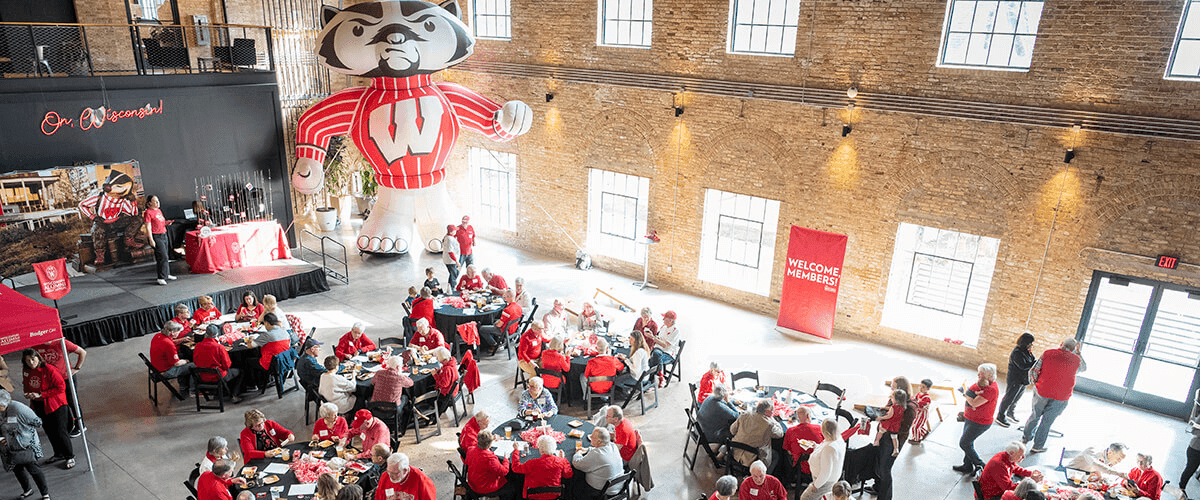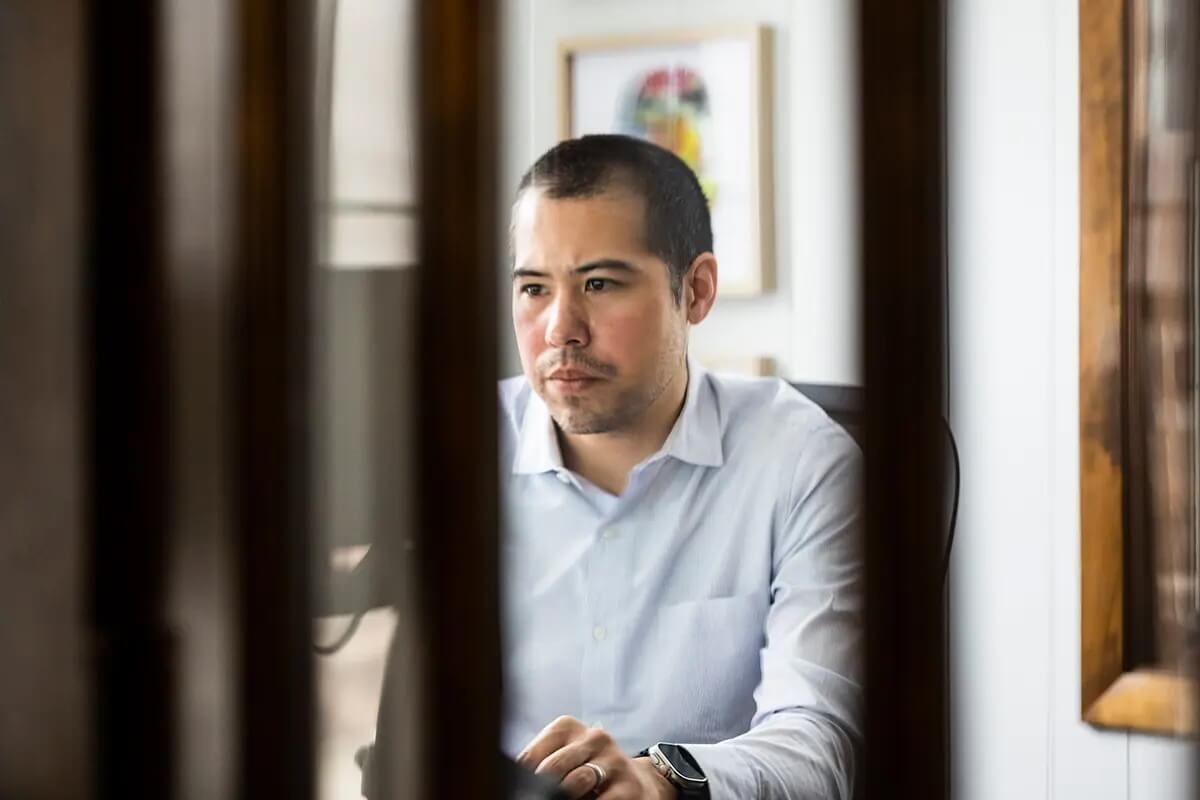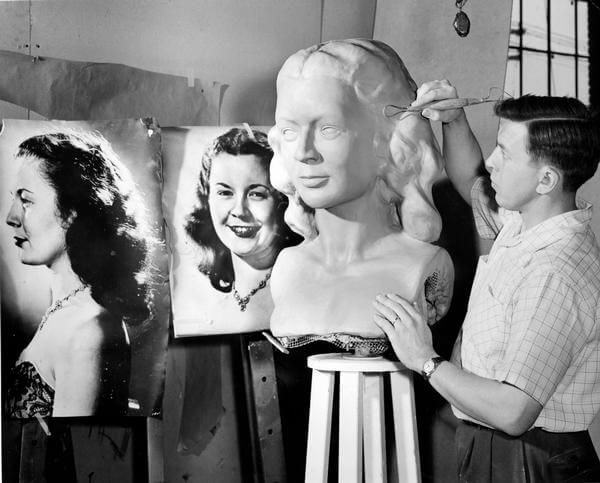Shawn Robinson is a research affiliate at Wisconsin’s Equity and Inclusion Laboratory (Wei Lab), where he’s working to remove literacy-related barriers to the U.S. workforce and create more opportunities for those facing reading challenges, particularly dyslexia. He also recently became a member of the Reading Center’s Hall of Fame alongside his mentor and, notably, the man who taught him to read, Robert Nash.
Having had undiagnosed dyslexia throughout his childhood, Robinson graduated high school with an elementary school reading level before his mother discovered Nash’s program for adult language instruction. The program sparked a love of reading and a passion for literacy that inspired Robinson to pursue a doctorate. He now helps children with struggles similar to his own through his research, teaching, and graphic novel series Doctor Dyslexia Dude! Cowritten with his wife, Inshirah Robinson, and illustrated by Brandon Hadnot, the books follow a young superhero who has dyslexia, and they take kids on a journey of self-empowerment using colorful images and the power of words.
How did your experience growing up with dyslexia influence you to write a graphic novel series?
I could read, but my reading was below my age and grade level. I avoided reading as much as possible because I didn’t have the tools and strategies to read, and it was boring. However, my reading growth accelerated when I received some instruction and became more engaged.
I’d never read comics or graphic novels, but my wife likes to read and write. After I tried to write the first one, she said, “No one’s going to read this. This is too academic.” My writing was too technical for that specific space. So, she framed my ideas, and we turned them into a combination comic-style, superhero-themed graphic novel so they were more accessible, kid-friendly, and engaging to the students who read them.
What do you hope readers of Doctor Dyslexia Dude! take away from the series?
One of the biggest themes in our books is to help students know that they’re not alone through the process. It’s okay to have these emotions about where they’re at, but [they should] never give up. That’s the theme we wanted for the first two books. The third book centers on word families, word parts, and building and taking words apart through the culturally responsive lens of having the characters in a rap battle. We wanted to make it more accessible for the younger readers who are now learning the word parts and enjoying the process.
We also have the mascot Doctor Dyslexia Dude that we take to book readings or appearances, so young kids of color can see themselves represented as this empowered superhero.
In addition to your academic research and the graphic novels, you also volunteer your time and teach literacy in your community. What has that experience been like?
I consulted with Sustainability, Education, and Progress as One (SEPO), a nonprofit in Oshkosh, on an afterschool literacy program. Several states have a large literacy gap between Black and white students, but Wisconsin’s is the worst in the country.
We had 17 students, including ESL learners and those with learning disabilities, in the inaugural cohort of the community literacy initiative, an eight-week course. They were a great group of kids who had spirit and wanted to learn, but the school districts essentially turned them away.
When post-testing was completed, we met with the students and gave them their results one-on-one. The smiles and spark in their eyes — that’s everything right there. You can’t put a price on that. These kids before had no hope, but when they realized that they improved, it built confidence, independence, and a sense of empowerment. You can’t measure those things. Their growth in such a short time was a testament to their hard work.
If I could do this in 14 hours, imagine if that’s doubled. Imagine that tripled. Imagine what those numbers would be like if that happened for an entire academic year. But not just the numbers — think about the opportunities and the access you could give these students.
You’re giving a presentation at an upcoming lexicography conference. How did you become so interested in studying the dictionary?
Dr. Nash taught me how to “crack the code” of reading using methods developed by lexicographers. Ever since, I’ve been a consumer of dictionaries — reading and studying them. Lexicography is not my field. I didn’t go to school for it, and I’m not a trained lexicographer. But I’ve been studying the dictionary for 26 years, ever since it was used to teach me how to read. In the 17th century, dictionaries were designed for middle-class and upper-class families. They weren’t for us. Today, dictionaries are a tool for language learning and one of the most low-cost literacy resources out there. Why not use it?
I’m going to speak about this at this conference, about how dictionaries are the tool for language learning.
If you come across a term that a student doesn’t know how to spell, pronounce, read, or write, why not just have them open a dictionary and say, “Hey, we’re going to find this word in the dictionary. I’m going to help you phonetically break the word apart. I will help you understand the word configuration. The word has a prefix or suffix. What does that mean? I’m going to help you understand the meaning of the word, and then I will help you understand how the word’s being used in this context.”
The theme of the conference is the dictionary as a tool. And that’s exactly what I do.
You’ve described yourself as a “social entrepreneur.” What does that mean to you and your work?
For me, it means going beyond my academic career and my businesses and includes having a social impact outside of that.
I like to make my work accessible to families. Because, let’s face it, who outside of the academy or campus is reading my work? Whether it’s writing graphic novels with my wife or literacy interventions in the community, I want people who otherwise might not be afforded the opportunities to access high-quality books and literacy instruction. Social entrepreneurship is about getting my work out there to have an impact. Not just now, but even after I leave the earth, it will still affect kids.







